World
Out in the World: LGBTQ news from Europe and Asia
Social media under pressure after a queer teenager’s died by suicide in India

Romania
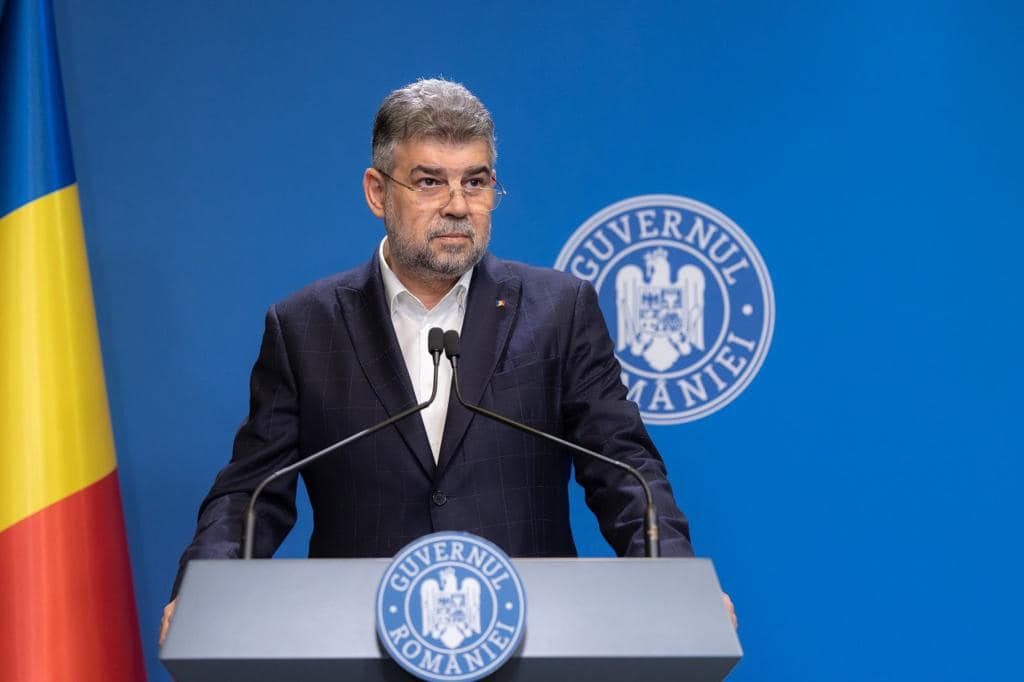
In an interview on Nov. 23 with Europa FM, Romanian Prime Minister Marcel Ciolacu, responding to a question regarding the recent European Court of Human Rights ruling that his nation was in violation of Article 8 of the European Convention on Human Rights over the issue of same-sex marriages, said that it was his belief that his fellow citizens generally are not ready to uphold the rights of same-sex couples.
The ECHR ruled this past May Romania had failed to enforce the rights of same-sex couples by refusing to recognize their relationships, in a ruling which could eventually force policymakers to expand protections for the LGBTQ community, Reuters reported.
Ciolacu, who is the leader of the Social Democratic Party, told Europa FM that “… the Romanian society is not ready for a decision at the moment. It is not one of my priorities and … I don’t think Romania is ready.”
“I am not a closed-minded person, I … have friends in relationships with a man, I don’t have a problem with that, I am talking now from the point of view of a prime minister.”
ACCEPT, the non-governmental organization in Romania that defends and promotes LGBTQ rights, disagreed with the prime minister’s assessment of the mood of the country regarding LGBTQ rights. In a statement the NGO said:
“Romanian society has embraced European values regarding human rights and demonstrates that it is ready for the adoption and implementation of a set of laws to ensure the protection and legal recognition of LGBTI families. After the sociological research carried out by Accept in 2021, a new study comes to confirm this fact.
The results of the research carried out by the Ipsos initiative in 2023 show that 51 percent of Romanians would support some form of legal recognition of LGBTI families. Moreover, the Bucharest Pride March brought over 25,000 participants to the streets this year — a record number for Romania. The figures that place the march at the top of the street protests with the highest participation in our country are telling when it comes to the solidarity and empathy with which Romanians position themselves in favor of the protection and recognition of all families.”
The government of Romania has filed an appeal of the ECHR ruling, which ACCEPT denounced saying it was “completely reprehensible the Romanian government’s action to contest this ECHR decision.”
The Vatican

Awaiting Pope Francis after he finished his Sunday Angelus last week, guests gathered in the Paul VI Hall for a luncheon made up of the poor and their companions including a group of trans women, who all had a history of personally interacting the pontiff.
More than 1,200 people in all came for the lunch that transformed the hall into a large and unique restaurant for the customary annual lunch with Francis on the World Day of the Poor.
PinkNewsUK reported that the pontiff had invited the transgender women in order to offer them comfort and support, and ensured they received VIP treatment. In fact one of them, Claudia Vittoria Salas, a former sex worker, was seated at the table with Francis himself. Salas, who is a godparent to three of her nieces and nephews in her home country, Argentina, said she did sex work in order to put her children through school.
She told the Associated Press: “Being a godparent is a big responsibility; it’s taking the place of the mother or father. It’s not a game.”
Francis began the lunch with a blessing when he thanked the Lord for this “moment of friendship, all together,” for the meal, and for those who prepared it. The tables adorned with white and yellow flowers offered a colourful backdrop for images capturing an unforgettable moment of welcome, concern, care and love for all those who for the rest of the year live on the streets.
The Dicastery for the Service of Charity organized the event, while Hilton Hotels offered the lunch, dedicating special attention to the menu so that the meal could be enjoyed by people of various faith backgrounds present.
On the menu were cannelloni with Roman ricotta and spinach with a Parmigiano Reggiano sauce, sautéed white meatballs with a velouté of San Marzano tomatoes and basil with a cauliflower purée, followed by Tiramisu and small pastry desserts.”
Ireland

A 13-year-old trans teen from the east of Ireland, from the city of Wicklow located south of Dublin on the Irish Sea, was a keynote speaker at the 2023 Child Talks conference.
Bee Fennell, was one of six youth speakers at the Child Talks conference held at Dublin’s Helix Center for the Performing Arts, addressing the need for further education programs regarding to transgender issues facing Irish youth.
GCN, Ireland’s largest LGBTQ media outlet reported:
Among other issues discussed at the event, including STEM programs for girls and vaping, LGBTQ issues emerged as a serious concern for school-aged children through the country. Fennell used their time on stage at the Child Talks conference to discuss their experience coming out as a trans teen and the lack of resources available for trans youth in Wicklow.
“I wanted to take part in Child Talks 2023 because I wanted to share my story and hopefully encourage others to get the education to be a true ally to the community and to understand what it is like to be transgender,” said Fennell.
During their time on stage, Fennell described how they came out to their family and their school: “I was 12 when I officially came out to my parents and only a few months later, to the primary school that I was attending.”
“Coming out to my school was the biggest step, because it meant everyone knew, it wasn’t just in the house anymore. I remember that night so clearly, mam and I, sitting on the couch, typing an email that was going to change my life.
I talked about my name and gender change and explained what it meant. That email was sent around 7 p.m., outside school hours. We received a response 3.5 hours later, at 10:30 that night.”
Fennell, who uses they/them pronouns, went on to explain how their school set up a meeting to help the then 12-year-old come out to their classmates: “After a terrifying but amazing meeting with my school to discuss next steps, the day came when the teacher would tell the class about who I really was.
Me and two friends I had already come out to went to a separate room to avoid any negative reactions. After the most anxiety-filled half-hour of my life, I was walking up the steps to where my class awaited my arrival. A few friends immediately hugged and congratulated me.”
Unfortunately, as Fennell noted, not everyone’s reaction was so kind.
“Some others just stared. Shocked, confused, some even with disgusted impressions,” they said.
Thankfully, however, the vast majority of Fennell’s classmates were accepting and welcoming, leading the trans teen to report that “At that moment … I was more comfortable in my identity than I have ever been before. I was officially Bee, officially me.”
Bee went on to explain how the LGBTQ organization, BelongTo youth services, helped them discover the community that they’ve always been looking for.
“I had been alone in that fight until I walked into that [BelongTo] youth group. I always knew there was community, sure, it’s in the name. But I didn’t have anyone in my position, having gone through it. I didn’t have anyone who didn’t get confused when I simply introduced myself until I walked into that group,” Fennell concluded.
United Kingdom

An independent Regulatory Commission has imposed an action plan and significant fine on the Luton Town Football Club for misconduct in relation to crowd control at their game against Brighton and Hove Albion in the Premier League match that was held on Aug. 12.
The Football Association based at Wembley Stadium in London announced that the club has been fined £120,000 ($151,212) after homophobic chanting from fans took place during an away match against Brighton and Hove Albion.
According to the governing body, Luton Town admitted that they “failed to ensure their spectators and/or supporters (and anyone purporting to be supporters or followers) conduct themselves in an orderly fashion; and do not use words or otherwise behave in a way which is improper, offensive, abusive, indecent or insulting with either express or implied reference to sexual orientation.”
In an interview with the local newspaper, Luton Today, a spokesperson for the team said:
“As an inclusive, family-oriented club, Luton Town abhors abusive chanting such as this and has a zero-tolerance policy towards discrimination of all kinds. It is not acceptable towards anyone in football or wider society, either in person or online. Those involved were committing a criminal offense and anyone subsequently identified will be issued with a club ban and face potential police investigation.”
The club went on to note that it was working with supporters to help form the Rainbow Hatters supporters’ group for members of the LGBTQ community, who meet regularly to share their experiences of watching the Hatters.
“We will continue to promote the ‘Love Football. Protect The Game’ campaign, which this season has focused especially on fan behavior, and will work further with supporter groups to educate and inform on all forms of discriminatory acts to ensure that watching Luton Town is a safe and welcoming experience for everyone,” the club told Luton Today.
Russia
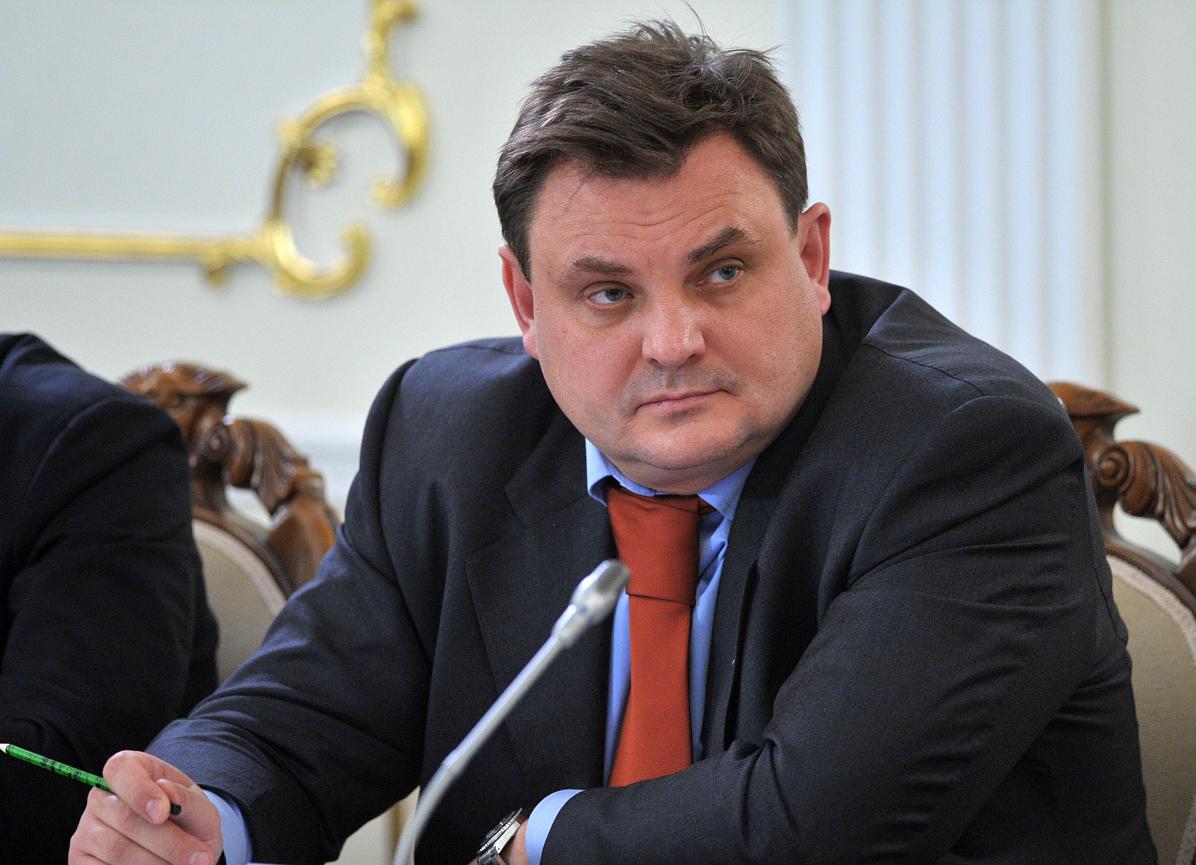
The Russian Justice Ministry has lodged an administrative legal claim with the Russian Supreme Court to recognize the global LGBTQ rights movement as extremist and ban its activity in Russia.
In a Justice Department press release, LGBTQ Russians were referred to as an “international social movement” by the Justice Minister Konstantin Chuychenko.
The ministry did not specify whether it was seeking the closure of any specific groups or organizations, or if the designation would apply more broadly to the LGBTQ community, causes and individuals, Agence France-Presse reported.
This latest action by the Russian government follows nearly 10 years of the Parliament, comprised of the State Duma, which is the lower house, and the Federation Council, which is the upper house, passing legislation attacking its LGBTQ citizens. In July of this year legislation that will effectively ban the existence of trans Russians was signed into law by President Vladimir Putin.
The law now bans Russians from changing their gender on official government identity documents including internal and external passports, driver’s licenses and birth certificates, although gender marker changes had been legal for 26 years since 1997.
Medical healthcare providers are now banned from “performing medical interventions designed to change the sex of a person,” including surgery and prescribing hormone therapy.
In December 2022, Prime Minister Mikhail Mishustin issued a decree on Christmas Eve expanding and amending Russia’s “gay propaganda” law signed by Putin. That law set fines for books or media that represented non-straight relationships.
The Justice Ministry in its statement accused the “LGBTQ movement operating on the territory of the Russian Federation” of “various signs and manifestations of extremism, including incitement to social and religious hatred.” If the court upholds the ban as passed, prosecutors will have the power to pursue “terrorism” cases against LGBTQ Russians, especially activists.
Speaking with Agence France-Presse, the head of the Sphere human rights group, which advocates for the Russian LGBTQ community, criticized the announcement.
“Russian authorities are once again forgetting that the LGBTQ+ community are human beings,” said Sphere head Dilya Gafurova, who has left Russia.
Authorities “don’t just want to erase us from the public field: They want to ban us as a social group,” Gafurova told AFP. “It’s a pretty typical move for repressive non-democratic regimes — the persecution of the most vulnerable. We will continue our fight,” he added.
The Supreme Court’s ruling is scheduled for Nov. 30.
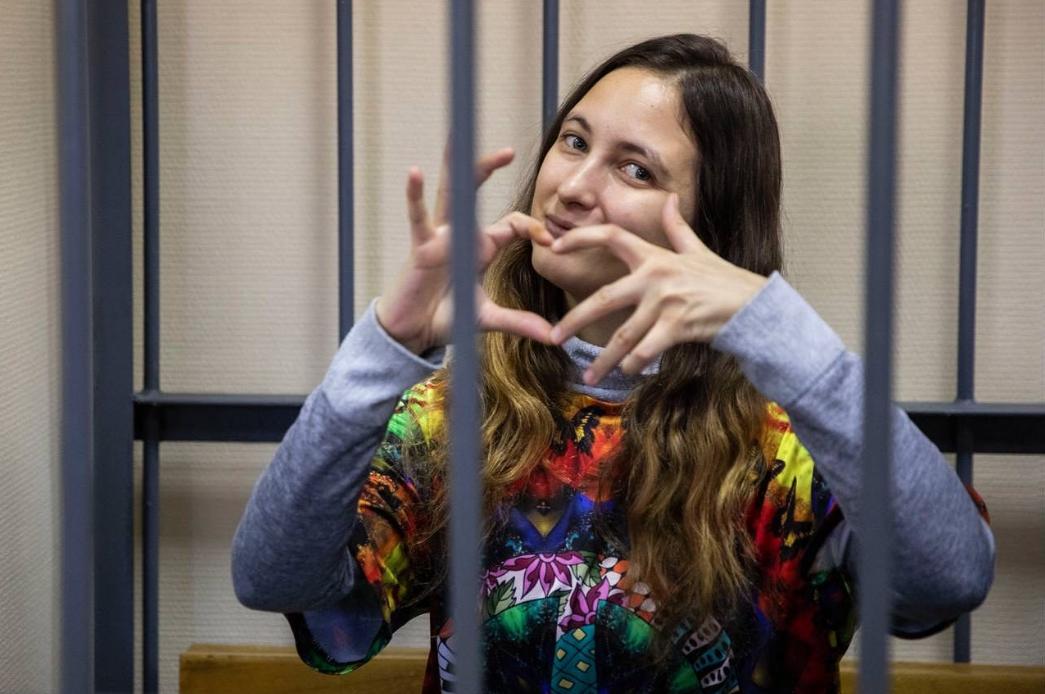
A 33-year-old lesbian artist was sentenced by a Russian court to a term of seven years in a penal camp, after she was convicted of spreading disinformation about the Russian army.
Alexandra Skochilenko, who goes by Sasha, swapped supermarket price tags with slogans criticizing Putin’s war against Ukraine. An elderly shopper reported the swapped tags to the police.
Skochilenko is just the latest among thousands of Russians who have been detained, jailed or fined for speaking out against Putin’s large-scale military operation in Ukraine that has cost the lives of tens of thousands Russian, Ukrainian troops and civilians.
Her supporters in the courtroom shouted “shame” and “we’re with you Sasha” after the judge Oksana Demiasheva read out the verdict, an AFP journalist at the sentencing reported. Skochilenko wore a colorful T-shirt with a large red heart printed on it, and she made a heart shape with her hands and smiled to supporters during the hearing.
Addressing Demiasheva, Skochilenko said:
“Your Honor! Every court sentence is a certain message to the public. You may think of this information differently than my lawyers or I do, but you will agree that I have my moral principles and that I haven’t departed from them, not by an inch. You will probably agree that I have shown courage, resilience and fearlessness. In the slang of investigators, to put someone in jail is ‘to take them prisoner.’
And I have not given up under threats of being taken prisoner, of bullying, illness and the 8-year sentence that prosecution has asked for; I have not been hypocritical; I have been honest before myself and before the court.
If you choose to convict me, what message will you send to our fellow citizens? That you have to break if you’re taken prisoner? That you have to lie, be a hypocrite, change your convictions if you face some pressure? That you can’t have pity for our soldiers? That you can’t wish for peaceful skies above our heads? Is it really what you want to say to people in times of depression, instability, crisis, and stress?
My process is widely covered in Russia and in the world; news videos and documentary films are being made, and even books are being written about it. So regardless of the verdict you deliver, you will become part of history. Perhaps you will become part of history as the person who convicted me; perhaps as the person who acquitted me; perhaps as the person who made a neutral decision and gave me a fine, a conditional sentence, or a time that I have already served. It is all in your hands, but remember: Everybody knows, everybody sees that you’re not trying a terrorist in this court. You’re not trying an extremist. You’re not even trying a political activist. You’re trying a musician, an artist and a pacifist.”
“Every person in this room wants only one thing: Peace. Why fight?” she added in her closing statement.
According to the Russian language media outlet Mediazona, federal prosecutor Alexander Gladyshev told the court: “Skochilenko compares the Russian Federation with a fascist state, they [prosecution expert witnesses] explained that in the Russian Federation now there are no elements of a fascist state. The words that Russia attacked Ukraine are false; the purpose of the SVO [special military operation] was to protect the citizens of Donbas from aggression,” Gladyshev said.
Skochilenko’s mother says her daughter suffers from health issues, including celiac disease and a congenital heart defect, adding that a long prison term would be a “catastrophe.”
India
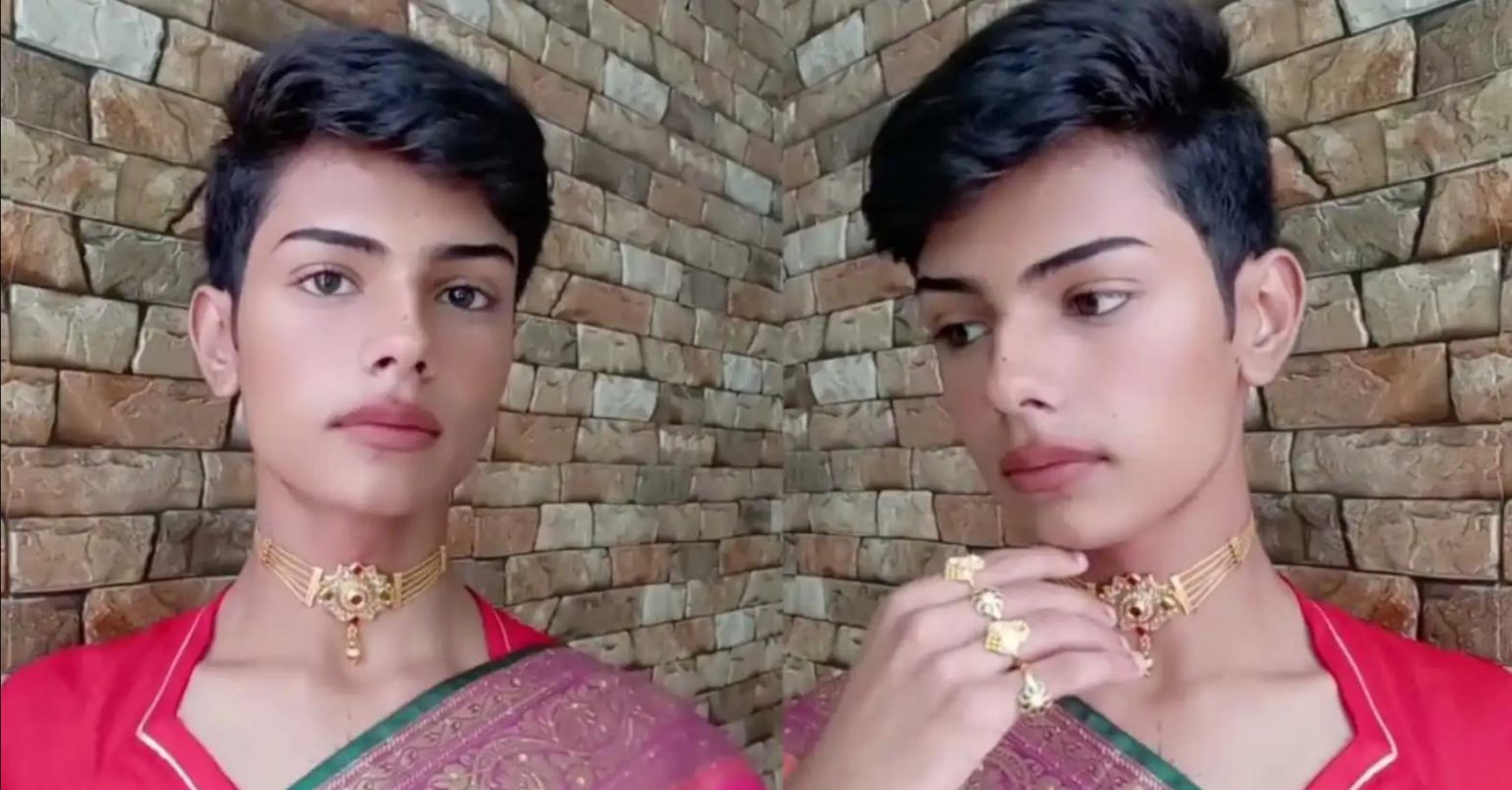
The death of a queer teenager by suicide in the ancient city of Ujjain beside the Kshipra River in the central Indian state of Madhya Pradesh has LGBTQ advocacy groups calling on social media giant Meta to address what one group, Yes, We Exist, to label as “mass bullying on Instagram.
According to the local media outlet Ujjain News, Pranshu Yadav, 16, whose Instagram account has 14,000 followers and more than 300 posts was found hanging in their bedroom on Nov. 21 by their mother who rushed the adolescent to hospital where they later died. Local police are now investigating.
Yes, We Exist highlighted how Yadav, who was attempting to build a career as a professional makeup artist, received more than 4,000 comments on a current Instagram reel, many of which were homophobic.
In the reel they were attacked for wearing a saree in a reel they posted celebrating Diwali, the Hindu festival of lights earlier this month. A saree (also spelled sari) is a an outer garment, mainly worn by women from the Indian subcontinent, that is made of about six yards long fabric. A saree, worn with a blouse or choli, is wrapped around the waist over a petticoat with the left end made to hang over the head or shoulder. A saree comes in various types of fabric, color, design and styles.
In India’s culture of toxic masculinity where LGBTQ people are still ill regarded and full equality is years away, the reaction to the queer teen’s Instagram post was almost predictable an India activist told the Washington Blade via a Telegram exchange.
Yes, We Exist now calling on Instagram, which is owned by Meta, to invest in its non-English languages and ensure cyber bullying is tackled.
“We have ourselves reported queerphobic content several times and most often no action is taken. On the contrary, when people call out bullies, they get penalized by Meta,” Jeet, the founder of Yes, We Exist, told PinkNewsUK.
Jeet added that the “tragic loss” Pranshu it is a “devastating reminder of the real-world consequences of online bullying.”
“The LGBTQIA+ community in India mourns not only the individual but also the systemic challenges we routinely face.
The call for greater accountability from platforms like Instagram and from Indian lawmakers who have not prioritized offline and online safety of our community, is urgent to ensure the well-being of young queer individuals like Pranshu.”
Thailand
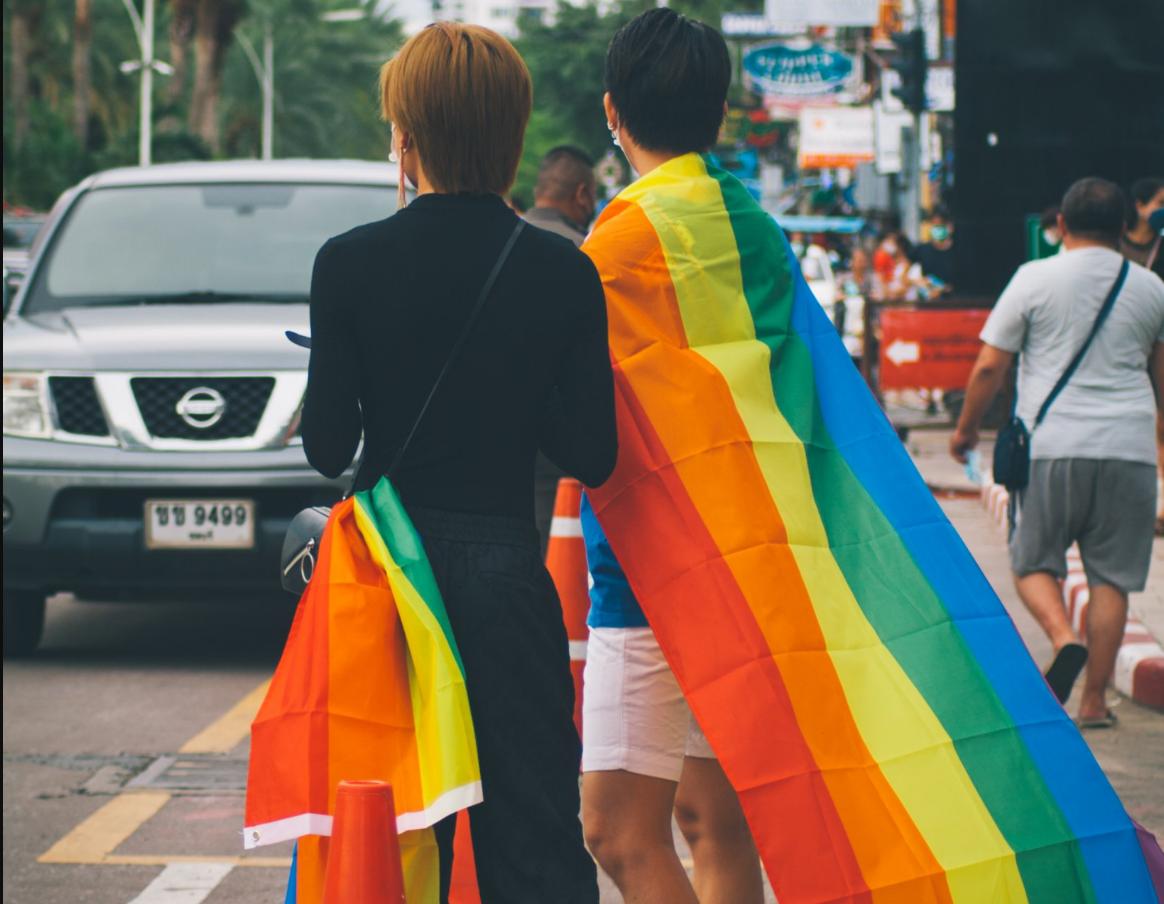
The Thailand Cabinet approved an amendment to the country’s civil code to allow same-sex marriage, with an expectation for the draft to be submitted to the National Assembly in December, the Associated Press reported.
Deputy government spokesman Karom Polpornklang said the amendment bill proposed by the Justice Ministry seeks to allow same-sex marriage with full legal rights. It will also allow members of the LGBTQ community to build families and ensure both spouses have equal rights.
Karom said the bill’s main principle is to remove the terms “men,” “women,” “wives” and “husbands” from the civil code.
The terms will be changed to “persons,” “fiancées,” “engaged couples” and “married couples,” so men can marry men and women can marry women and have the same rights as male-female unions.
The deputy spokesman said the Cabinet has also called on the Council of State to amend other laws accordingly, so the surviving spouse in a same-sex marriage is entitled to receive the inheritance left behind by their partner.
The Council of State has also been tasked with scrutinizing the same-sex marriage bill, and once that is done it will be submitted to the House, Karom said.
Thai government spokesman Chai Wacharonke said the amendment bill would be different from the Life Partnership Act that was enacted by the last government.
He said this act simply endorses the rights for same-sex couples to spend their lives together but does not provide full legal marital rights.
Additional reporting from Europa FM, PinkNewsUK, The Associated Press, Vatican Press, Mediazona, Agence France-Presse, Luton Today, GCN Ireland and Ujjain News.

The Mexican Senate on Thursday approved a bill that would ban so-called conversion therapy in the country.
Yaaj México, a Mexican LGBTQ rights group, on X noted the measure passed by a 77-4 vote margin with 15 abstentions. The Chamber of Deputies, the lower house of Mexico’s congress, approved the bill last month that, among other things, would subject conversion therapy practitioners to between two and six years in prison and fines.
The Senate on its X account described conversion therapy as “practices that have incentivized the violation of human rights of the LGBTTTIQ+ community.”
“The Senate moved (to) sanction therapies that impede or annul a person’s orientation or gender identity,” it said. “There are aggravating factors when the practices are done to minors, older adults and people with disabilities.”
Mexico City and the states of Oaxaca, Quintana Roo, Jalisco and Sonora are among the Mexican jurisdictions that have banned the discredited practice.
The Senate in 2022 passed a conversion therapy ban bill, but the House of Deputies did not approve it. It is not immediately clear whether President Andrés Manuel López Obrador supports the ban.
Canada, Brazil, Belgium, Germany, France, and New Zealand are among the countries that ban conversion therapy. Virginia, California, and D.C. are among the U.S. jurisdictions that prohibit the practice for minors.
South America
Argentina government dismisses transgender public sector employees
Country’s Trans Labor Quota Law enacted in 2021

Protests have broken out across Argentina in recent weeks after the dismissal of transgender people from their government jobs.
President Javier Milei’s action is in stark contract with the progress seen in 2023, where the government’s hiring of trans people increased by 900 percent within the framework of the Trans Labor Quota Law that had been in place since 2021.
Among those affected is Sofia Diaz, a “survivor” who shared her testimony with the Washington Blade hours after she traveled from Chaco Province to Buenos Aires to protest her dismissal.
Presentes, an LGBTQ news agency, reported the government dismissed more than 85 trans employees in less than two weeks.
Diaz, 49, holds a degree in combined arts. She joined the National Social Security Administration (ANSES) in 2022 under the Trans Labor Inclusion Law. The layoffs began in January and left many people feeling uncertain and anguished. It was her turn a few days ago.
Diaz in an interview recounted how the situation became progressively more complicated, with difficulties in accessing information about her employment status and the eventual confirmation of dismissals through WhatsApp messages. This government action, according to Diaz, violates the law.
“We were on a Friday, I think on March 24, in the office and we have a WhatsApp group of other colleagues from all over Argentina who entered through the trans labor quota and they tell us if we can get our pay stubs on the intranet,” Diaz recalled. “So, I tried to enter, I could not, I talked to two other colleagues and they told me no, they could not, and so we went to another person. He couldn’t either.”
“Some people told us that it could be a system error. Well, we were never calm, let’s say not how this issue of installing fear and the perversion with which they do it ends,” she added. “This sadism of … inflicting pain and speculating with your misfortune and so on … is something that characterizes Javier Milei’s government.”
Diaz recalled a list of those dismissed from the agency began to circulate from the union in the afternoon. A colleague passed it on to her, “and well, unfortunately I was also on that list.”
“At that moment the whole weekend went by with anguish, crying, and talking with other colleagues from other places, not only trans, but everyone, everyone and everyone,” she said. “On Monday when we went to try to enter, we could not enter with the biometric, which is the thumb we had to use every morning to enter.”
Despite the difficult moment through which she is going, the trans activist stressed to the Blade that she will continue protesting and will even sue the government because her dismissal is illegal and “violates the constitution itself.”
The LGBTQ community and its allies have mobilized and organized demonstrations, highlighting the importance of defending the rights won and fighting against discrimination and exclusion. Diaz emphasized the fight is not only for the people affected today, but also for future generations, saying the historical memory of the struggles for inclusion and social justice must be kept alive.
“The Argentine government thus faces a key challenge in human and labor rights, where public pressure and social mobilization can play a determining role in protecting the rights of LGBTQ+ people,” Diaz said.
Africa
For queer Nigerians, being on gay dating apps is still a risk
Homophobes target users for violence

Gay hookup apps like Grindr, and dating apps like Tinder and Bumble have managed to proliferate queer communities in countries like Nigeria.
Those who seek one night stands find what they want while those looking for love equally find what they seek. These platforms have managed to position themselves as safe spaces for queer people in anti-gay Nigeria. In recent times, however, it is proving to be unsafe, as homophobic people are quickly learning about the apps, and opening accounts that either seek to outrightly threaten queer people, or pretend to be queer, have long chats with gay people, invite them over, and inflict violence on them.
Take the case of Biodun, a queer Nigerian man who joined Grindr to meet up with guys like him.
After Biodun had built a connection and agreed to meet with someone whose display name was “Mamba,” they decided to meet up only for him to be met with violence. Apparently, Mamba ran a catfish account.
“I’ll never forget that day,” Biodun, who asked the Washington Blade not to use his last name because of safety concerns, said. “I still think about it, and sometimes blame myself for being very careless, even though Grindr was supposed to be our safe space.”
Biodun’s experience isn’t peculiar to him.
In Nigeria, draconian laws that criminalize same-sex relationships exist, making queer people turn to the digital realm to explore their identities and seek connections beyond the confines of societal oppression that comes with the physical environment. Gay dating apps such as Grindr, therefore, have emerged as virtual sanctuaries, offering spaces for queer Nigerians to forge friendships, find solidarity, and pursue romantic or sexual relationships. Spaces like this, however, have morphed into a landscape fraught with danger, as homophobic people have weaponized these platforms to perpetuate hate and violence.
“Sometimes, I often wonder how they learned about these platforms,” Daniel, which is not his real name, told the Blade. “You would think that it is just us in the platforms, until you find out that the accounts are rooted in homophobia.”
One time, someone’s bio read, “I’m only here to deal with the gay people. I know all of you, and I will find and kill you. We no want una for here (translates to we do not want you here, in English.)” It was a stark reminder that these spaces are no longer LGBTQ-friendly for Nigerians. In 2014, there was the passage of the Same-Sex Marriage Prohibition Act by former President Goodluck Jonathan, which not only criminalized same-sex unions, but also imposed severe penalties on anyone involved in LGBTQ advocacy or support.
This law catalyzed a surge in discrimination and violence against queer Nigerians; emboldening regular civilians, religious extremists, and even law enforcement agencies to target individuals perceived as deviating from traditional gender and sexual norms. Again, amid this hostile environment, gay dating apps emerged as lifelines for many queer Nigerians, offering avenues for discreet communication, community building, and the pursuit of intimate relationships.
The very anonymity and freedom these apps provided, however, became double-edged swords.
The advent of screenshot and screen-recording capabilities on these apps, for example, reduced the risks of exposure, strengthening the safety and privacy of users. However, this also comes with its own lapses, as queer people using Grindr have often relied on screenshots and screen recordings to confirm the identities of potentials with their friends, before accepting to meet.
“Before the removal of the screenshot option, I usually shared photos of others with my trusted friends,” Biodun shared. “But since that was taken off, there was no way for me to do that.”
Although, according to Grindr’s terms and conditions, the removal came with privacy concerns, as it was to facilitate a safe dating experience.
This erosion of digital safe spaces is depriving queer Nigerians of vital avenues for self-expression and affirmation,and is exacerbating the psychological toll of living in a society that continues to systematically demonize their identities. Moreover, the normalization of homophobic rhetoric and violence in both physical and digital realms has perpetuated a cycle of fear and oppression, and is reinforcing this notion that LGBTQ individuals are inherently unworthy of dignity and respect. Despite these challenges, though, the resilience of queer Nigerians continue to persist, as they defy societal norms and assert their right to love and be loved.
-

 State Department4 days ago
State Department4 days agoState Department releases annual human rights report
-

 South America2 days ago
South America2 days agoArgentina government dismisses transgender public sector employees
-

 District of Columbia2 days ago
District of Columbia2 days agoCatching up with the asexuals and aromantics of D.C.
-

 Politics5 days ago
Politics5 days agoSmithsonian staff concerned about future of LGBTQ programming amid GOP scrutiny










